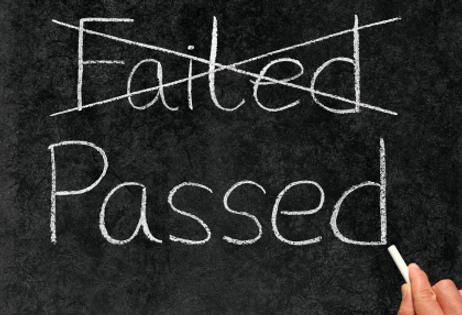While many feel relieved after leaving behind their former high school classrooms, new college students must ensure they adhere to their community college's academic requirements. Although community college certainly offers greater freedoms, students must maintain acceptable academic progress to stay enrolled.
Academic Probation Overview
As Lord Fairfax Community College (LCC), located in Warrenton, Virginia, reveals, strict guidelines and expectations exist for students' academic progress and conduct. While each institution has its regulations, LCC requires that all students maintain a GPA above 2.0. According to LCC policies, students who fail to earn a 2.0 GPA for one semester will receive an immediate “Academic Warning.” Similarly, any student who fails any course will also receive such a warning. This warning is designed to alert students of potential consequences if the low academic achievements continue.
Students enrolled in LCC who have earned 12 credit hours and fail to meet an overall GPA of 1.5 are placed on “Academic Probation.” Academic probation is permanently documented on a student's record as a much more serious step. A student in this circumstance is required to meet with a faculty advisor for additional guidance. Furthermore, with the support of an advisor or counselor, students may be required to reduce their anticipated course load for their upcoming semester(s). Adding to the implications, students on academic probation are banned from being appointed to any elective office in student organizations. Typically, academic probation lasts only one semester, as a student can regain his or her standard status after earning a semester GPA of at least 2.0 or higher.
Following academic probation, students who fail to raise their GPAs to the mandatory 2.0 ranking are placed on “Academic Dismissal.” Academic dismissal is essentially a form of suspension. This is, by far, the most severe theoretical consequence, as dismissal is most commonly permanent. The “Academic Dismissal” statement is also placed on the student's permanent records and transcripts.
How to Avoid Academic Probation
Prevention
For obvious reasons, community college students want to avoid academic probation at all costs. While students on probation will be required to adhere to a new set of rules and guidelines, the Educational Resources Information Center reports that there are significant drawbacks to academic probation. According to some reports, many students placed on intellectual probation struggle to return to their community college institutions or graduate due to feelings of discouragement. To avoid this plummeting pathway, students can utilize their community college programs' many resources.
- Academic Intervention – Foremost, if you struggle in one (or more) of your college classes, begin your academic intervention plan. You can meet with your advisor to learn about available tutors and campus resources for one-on-one guidance and instruction.
- Office Hours – If you're struggling in a class, take a proactive step by meeting with your instructor during his or her office hours. This allows you to ask specific questions about course or testing content, and your instructor will also be able to witness your academic drive and dedication.
- Free Tutoring – Since many private tutoring sessions can cost a lot of money, most colleges provide students with free tutorial services. Students can check with their instructors or advisors to learn about free tutoring on campus.
- Writing Centers – As many students struggle to boost their writing to meet collegiate expectations, most campuses offer a variety of support services at an on-campus writing center. Here, students can receive help starting their papers, revising their writing, and editing for errors. Similarly, some community colleges offer specialized academic centers for additional subject areas, such as math or science.
Fighting to Regain Your Academic Privileges
If you are currently facing academic probation, there are specific steps you can take to regain your educational privileges.
- Meet (and hopefully exceed) your school's minimum GPA rank to be re-enrolled as a general student.
- Be sure to maintain a GPA above the minimum rate for your remaining college semesters. Failure to do so commonly results in an immediate academic dismissal (once a student has already been on academic probation during his / her earlier college experience).
- In rare cases, students who are placed on academic probation may submit an appeal to the chair of admissions and a selection committee. Such appeals often allow students to argue for their readmission.
- If students are facing the dreaded circumstance of academic dismissal, some schools may allow students to reapply to the college; however, this is generally only permitted if / when a student can demonstrate “good cause” for their previous academic failure. Also, remember that most students who have not yet completed a certain number of educational hours are typically not permitted to be dismissed.
While there are ways to fight academic probation or dismissal, the best strategy is prevention. Take advantage of your campus' resources to stay ahead of your college's academic minimums.
Questions? COntact us on Facebook. @communitycollegereview












